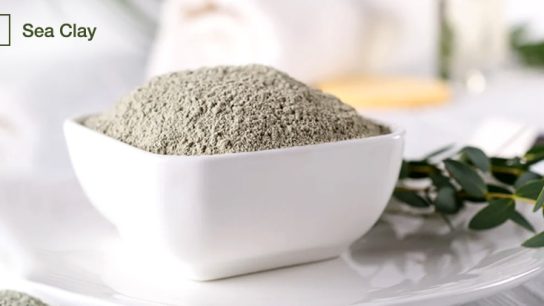In today’s fast-paced world, the concept of holistic wellbeing is more relevant than ever. The pressures of work, social expectations, and personal responsibilities can leave us feeling drained, disconnected, and stressed. While traditional medicine and therapies undoubtedly play a crucial role in healthcare, many are turning to holistic practices that address the mind, body, and spirit simultaneously. Holistic wellbeing focuses on the interconnectedness of these elements, recognizing that physical health, emotional balance, and spiritual harmony are essential for overall wellness.
Fortunately, holistic practices are not just about abstract concepts or theoretical benefits; they are backed by real results. From physical fitness to mental clarity, the practices outlined in this article have been shown to improve health and well-being, providing tangible, evidence-based results. Here, we explore the top 10 holistic wellbeing practices that can transform your life and support lasting vitality.
1. Mindful Meditation: Rewiring the Brain for Calm
Mindful meditation is a practice rooted in the ancient traditions of Buddhism, yet modern science has confirmed its powerful benefits. By training the mind to stay present, mindful meditation helps individuals break free from cycles of anxiety, depression, and negative thinking. Research has shown that regular meditation can physically alter the brain’s structure, particularly in areas related to emotional regulation, self-awareness, and decision-making.
Studies have consistently demonstrated that mindfulness meditation reduces cortisol levels, lowers blood pressure, and improves emotional stability. It encourages a calm and focused mind, making it one of the most accessible and effective holistic practices. To experience these benefits, start with just 10 to 15 minutes of daily practice. Focus on your breath, observe your thoughts without judgment, and gently guide your mind back to the present moment.
2. Nutritional Diet: Food as Medicine
The phrase “you are what you eat” holds more truth than we often realize. Nutrition plays an integral role in holistic wellbeing, and eating a balanced, nutrient-dense diet can have a profound effect on both physical and mental health. A diet rich in fruits, vegetables, whole grains, healthy fats, and lean proteins provides the body with essential vitamins, minerals, and antioxidants that support every system within the body.
Research supports the link between diet and mental health, highlighting the benefits of foods like omega-3 fatty acids, found in fatty fish, and antioxidants, which can help reduce inflammation and oxidative stress. Reducing processed foods, refined sugars, and unhealthy fats, while increasing fiber and whole foods, can result in better mood regulation, improved brain function, and enhanced energy levels.
3. Physical Activity: Movement for Mental Clarity
Exercise is one of the most well-researched and widely recognized methods of promoting holistic wellbeing. Regular physical activity not only boosts cardiovascular health and strengthens muscles, but it also has significant effects on mental health. Scientific studies have repeatedly shown that exercise releases endorphins, the body’s natural mood lifters, and reduces levels of anxiety and depression.
Moreover, physical activity improves sleep quality, boosts self-esteem, and promotes cognitive function. Whether through yoga, running, swimming, or even a daily walk, consistent movement helps maintain a strong body and a clear, focused mind. The key is to find an activity you enjoy, as this ensures that exercise becomes a sustainable part of your lifestyle.
4. Aromatherapy: Scented Solutions for Stress Relief
Aromatherapy involves the use of essential oils derived from plants to promote physical and emotional well-being. Scents like lavender, peppermint, eucalyptus, and chamomile are known for their therapeutic properties, helping to reduce stress, alleviate pain, and improve sleep quality. Studies show that essential oils can positively affect the brain’s limbic system, the area that controls emotions and memory.
Lavender, for example, is widely regarded for its calming effect, with multiple studies showing that it reduces anxiety and promotes relaxation. Diffusing essential oils in your home, adding them to a warm bath, or using them in massage oils can provide immediate relief from stress, anxiety, and tension, making aromatherapy a simple yet powerful holistic practice for daily wellbeing.
5. Deep Breathing Exercises: Activating the Parasympathetic Nervous System
Breathing exercises are a highly effective way to manage stress and enhance overall wellbeing. When stressed, the body activates the “fight or flight” response, which accelerates the heart rate and increases cortisol levels. Deep breathing activates the parasympathetic nervous system, which is responsible for calming the body and restoring balance.
One of the most widely used techniques is diaphragmatic or belly breathing. By inhaling deeply through the nose and allowing your abdomen to expand, followed by a slow exhale through the mouth, you can lower blood pressure, reduce anxiety, and increase oxygen flow to your body. Even just five minutes of deep breathing a few times a day can help manage stress and increase feelings of calm.
6. Quality Sleep: Rejuvenating Body and Mind
Sleep is the cornerstone of holistic health, and its importance cannot be overstated. A consistent sleep routine is essential for maintaining mental clarity, emotional stability, and physical vitality. During sleep, the body repairs cells, consolidates memories, and restores energy levels. Chronic sleep deprivation is linked to a variety of health problems, including obesity, heart disease, and depression.
Studies suggest that the average adult requires between seven to nine hours of sleep per night for optimal health. To improve sleep quality, establish a regular bedtime routine, limit screen time before bed, and create a calm, dark environment conducive to rest. Adequate sleep leads to enhanced cognitive performance, a stronger immune system, and a more balanced mood.
7. Journaling: Writing for Mental Clarity
Journaling is an effective tool for fostering emotional well-being and reducing stress. Writing down thoughts, emotions, and experiences helps to process and release pent-up feelings. Studies indicate that expressive writing can decrease the intensity of emotional trauma, reduce stress, and improve overall mental health.
By reflecting on daily events or exploring personal thoughts in a journal, you can gain clarity, discover patterns in your emotions, and develop greater self-awareness. Try setting aside time each day to jot down your feelings, insights, and gratitude. The therapeutic effects of journaling are widely recognized, making it an essential practice for those seeking mental and emotional balance.
8. Nature Therapy: Reconnecting with the Earth
Nature has a remarkable ability to rejuvenate the mind and body. Whether it’s a walk in the park, a hike in the mountains, or simply sitting by a lake, spending time outdoors can reduce stress and promote feelings of happiness and peace. Research has shown that exposure to natural environments lowers cortisol levels, reduces blood pressure, and enhances overall well-being.
Nature therapy, or “ecotherapy,” is increasingly recognized as a valuable tool for mental health. Even small amounts of time spent in nature can improve mood, increase energy, and enhance creativity. Aim to incorporate nature into your routine by taking short walks outside, tending to a garden, or simply enjoying the natural beauty around you.
9. Social Connections: Nurturing Relationships for Wellbeing
Human connection is essential for emotional and mental well-being. Positive relationships, whether with family, friends, or community members, provide emotional support, reduce feelings of loneliness, and improve overall happiness. Social connections are associated with lower levels of stress, enhanced self-esteem, and a longer lifespan.
Studies show that spending time with loved ones activates the brain’s reward system, releasing oxytocin, a hormone that promotes feelings of love and trust. To cultivate stronger social connections, prioritize meaningful interactions, whether through phone calls, shared activities, or simply spending quality time with those who matter most to you.
10. Gratitude Practice: Shifting to a Positive Mindset
Gratitude is a powerful tool for cultivating a positive mindset and enhancing mental wellbeing. Research has shown that regularly practicing gratitude can improve mood, increase resilience, and even strengthen the immune system. By focusing on what you have, rather than what you lack, you can shift your perspective, reduce stress, and increase feelings of happiness.
Try starting each day by writing down three things you’re grateful for. This simple practice can help you cultivate a mindset of appreciation and shift your focus from negative thoughts to positive ones. Over time, this practice will help rewire your brain to more readily notice the good in your life.
Conclusion
Holistic wellbeing is not just a trend; it’s a comprehensive approach to health that recognizes the interconnectedness of body, mind, and spirit. By incorporating these top 10 holistic practices into your daily life, you can experience real, tangible benefits that enhance your physical health, mental clarity, emotional resilience, and spiritual harmony. From mindful meditation to quality sleep, each of these practices has been scientifically validated, offering both immediate relief and long-term results. The journey toward holistic wellbeing is ongoing, but with dedication and consistency, the rewards are truly transformative.





